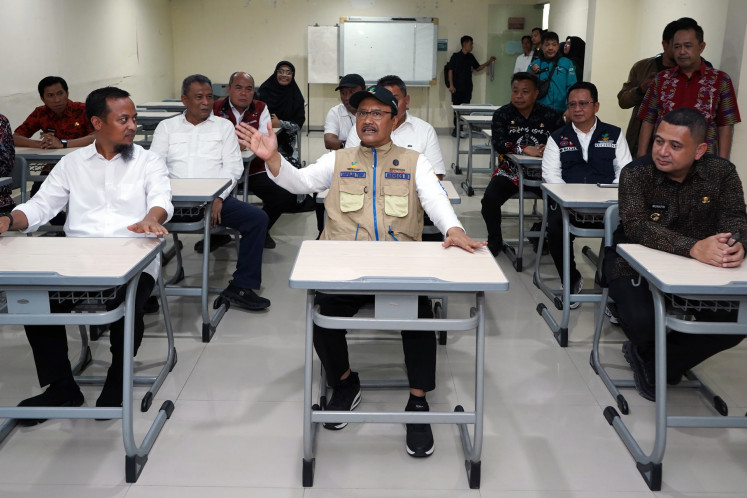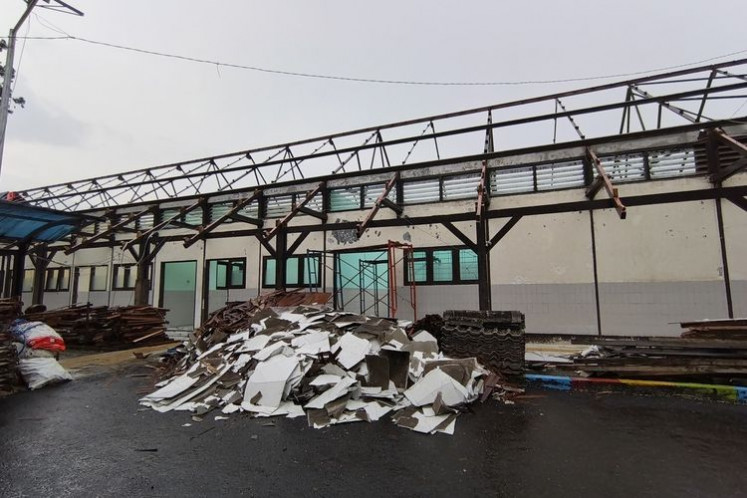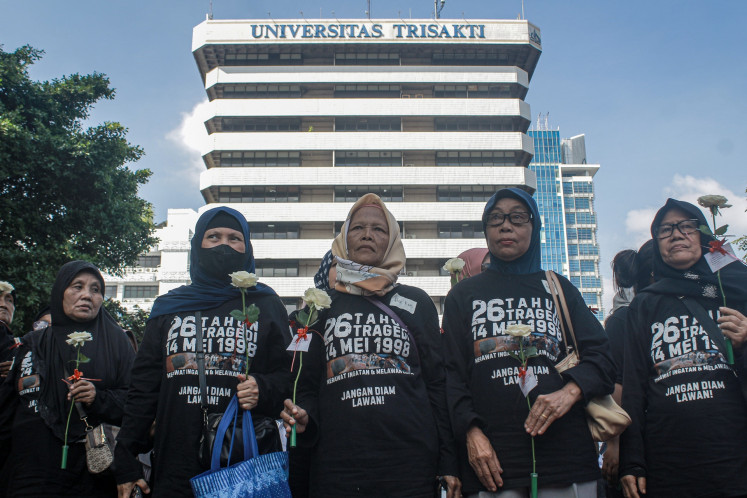Former Japanese premier Abe assassinated by gunman
Change text size
Gift Premium Articles
to Anyone

J
apan's former prime minister Shinzo Abe was assassinated on Friday by a gunman who opened fire at close range as the hugely influential politician delivered a campaign speech.
The assassination of the 67-year-old politician, Japan's longest serving leader, stunned the nation and prompted an international outpouring of grief and condemnation. It was all the more shocking given Japan's strict gun laws and low rates of violent crime, with Prime Minister Fumio Kishida describing it as a "barbaric act" that was "absolutely unforgivable”.
Abe was shot shortly before noon while campaigning in the western region of Nara ahead of upper house elections this weekend. He was flown by helicopter to the Nara Medical University Hospital, where he was pronounced dead several hours later.
"Shinzo Abe was transported to [the hospital] at 12:20 p.m. He was in a state of cardiac arrest upon arrival," said Hidetada Fukushima, the hospital’s professor of emergency medicine. "Resuscitation was administered. However, unfortunately, he died at 5:03 p.m."
Fukushima said Abe had suffered two gunshot wounds to the neck and died of massive blood loss, despite being administered an enormous amount of transfusions.
A visibly emotional Kishida told reporters after Abe's death was confirmed that he was "lost for words".
He had earlier abandoned the campaign trail and flew to Tokyo by helicopter, where in a quivering voice he condemned "a barbaric act during election campaigning, which is the foundation of democracy”.
"It is absolutely unforgivable. I condemn this act in the strongest terms," said the Prime Minister.
The attack occurred as Abe delivered a stump speech with security present, but spectators were still able to approach him easily.
Footage broadcast by NHK shows him standing on the stage when a man dressed in a grey shirt and brown trousers approaches from behind before drawing a weapon from a bag and firing. At least two shots appear to be fired, each producing a cloud of smoke.
As spectators and reporters duck, a man is seen being tackled to the ground and arrested by security personnel.
Local media identified the man as 41-year-old Tetsuya Yamagami, citing police sources, with several media outlets describing him as a former member of the Maritime Self-Defense Force, the country's navy.
He was wielding a weapon described by local media as a "handmade gun", and NHK said he told police after his arrest that he had "targeted Abe with the intention of killing him".
Officials from the local chapter of Abe's Liberal Democratic Party said no threats had been received before the incident and that his speech had been announced publicly.
Several parties announced in the wake of the attack that their senior members would halt campaigning, but the LDP and coalition partner Komeito later announced that canvassing would resume on Saturday.
The attack prompted international shock, with European Commission chief Ursula von der Leyen tweeting that the "brutal and cowardly murder" had shocked the world.
"The deadly attack on Shinzo Abe has left me aghast and deeply sad," said German Chancellor Olaf Scholz.
South Korean President Yoon Suk-yeol described the killing as an "unacceptable act of crime".
Abe held office in 2006 for one year and again from 2012 to 2020, when he was forced to step down due to the debilitating bowel condition, ulcerative colitis.
He was a hawkish conservative who pushed for the revision of Japan's pacifist constitution to recognize the country's military, and had remained a prominent political figure even after his resignation.
Japan has some of the world's toughest gun control laws, and annual deaths from firearms in the country of 125 million people are regularly in the single digits.
Getting a gun license is a long and complicated process for Japanese citizens, who must first get a recommendation from a shooting association and then undergo strict police checks.









